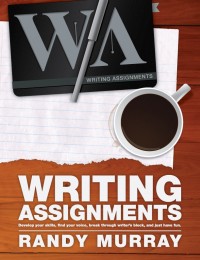Playwrighting is a very specific and odd type of writing. But the practices and skills of the playwright have deep application for many other forms of writing.
Plays aren’t typically meant to be read. They’re meant to be performed. It use to drive me nuts (OK, it still does) when I heard someone talk about reading Shakespeare and trying to figure out what he meant from the text alone. I get blank stares when I interject that Shakespeare never intended for YOU to read his plays. He wrote that particular scene with specific actors in mind. He knew that actors would have the skills and experience to understand exactly what to do. The actors of the day had standard comic or dramatic bits that they used. The audiences were familiar with them. They knew how to make the words WORK.
Of course, Shakespeare was a master, so his plays still function for theater companies who know how to produce them and for readers that probe and think. They work better if you know a lot about the theater, acting, performance, and stagecraft. THAT’s how you know what he meant. The words alone aren’t enough.
Playwrighting is about limits. What you have, the only thing you really have, is the things you give the characters to say. Every bit of stage direction you put in is unlikely to survive a creative director and a skilled cast. The words are yours, but everything else is up for grabs.
To build a play that works (that’s right, I said “build”), the playwright needs a clear understanding of the structure and shape of the play, not just what a character is saying at any given moment. The bones of a play are what make it more than just people talking and doing things. When a playwright or screenplay writer talks about “third act problems” it’s because they have structural problems, they don’t have a strong enough supporting structure to make it all work.
I’m wrestling with a new play now. I have some of the scenes, pieces of dialog, and the characters clearly in mind, but I’m struggling with the structure of the thing. It’s a good struggle. It will help me build something, write something that actors and directors can work with, something that they can make sense of to an audience. Something that will move and live. It’s possible that I’ll find out that I don’t have a play at all. That’s OK. It’s part of the process, the art. And the only way that I’ll find out is to do the work, to struggle, to think and test my ideas.
Many writers depend too much on their words. They imagine that their readers will understand exactly what they, the writer, intended. But without structure, without a clear understanding of all of the things that aren’t written down, the writer can’t really succeed. The reader won’t get the message. They won’t care. The most beautiful phrase is nothing in and of itself. If you want your writing to be truly successful, you as a writer must work, study your craft, learn about structure and form, and test everything.
Eventually you must hand your work over to readers and let them see what they can make of it. Listen to your readers, test and see if they understood what you wrote. Find out if it had the effect that you intended. Accept everything that they say.
And then, when you’ve listened, write again. Rewrite. Pull it apart and test each part. This is where you’ll grow as a writer. And this is how you’ll discover the artist within.
It’s a lot of work to be a writer, a good one, anyway. But that work is deeply satisfying. Frankly, that work is the really interesting part. If you’re a “one and done” writer you’re missing out on the best parts. You don’t know the real depth and potential of your talents. And it’s doubtful that you’ll ever be truly successful.
Owning a pen and paper doesn’t make one a writer. Neither does using a typewriter, a computer, or a blog. Doing the work, rewriting, testing, and writing again — that’s what makes you a writer.

